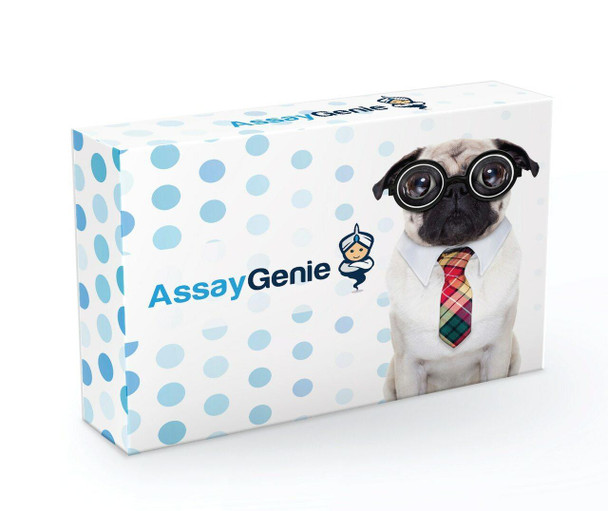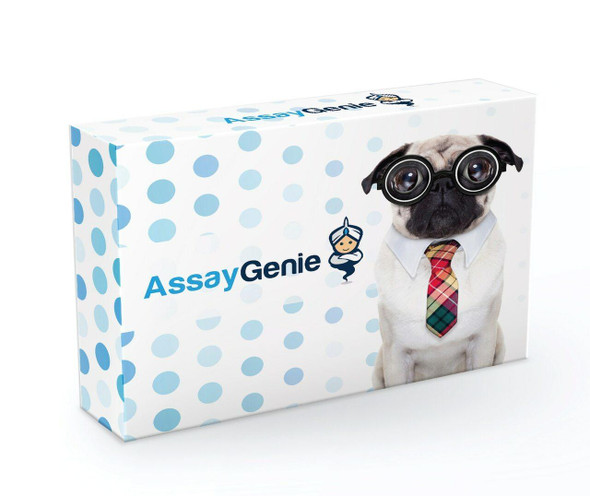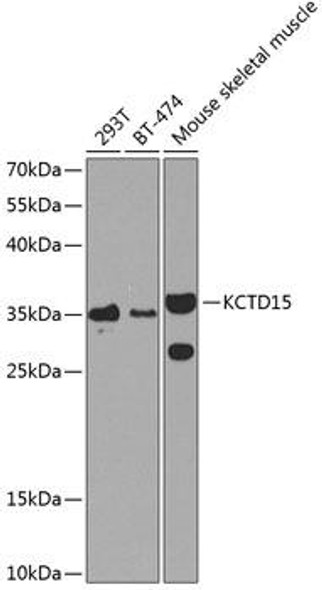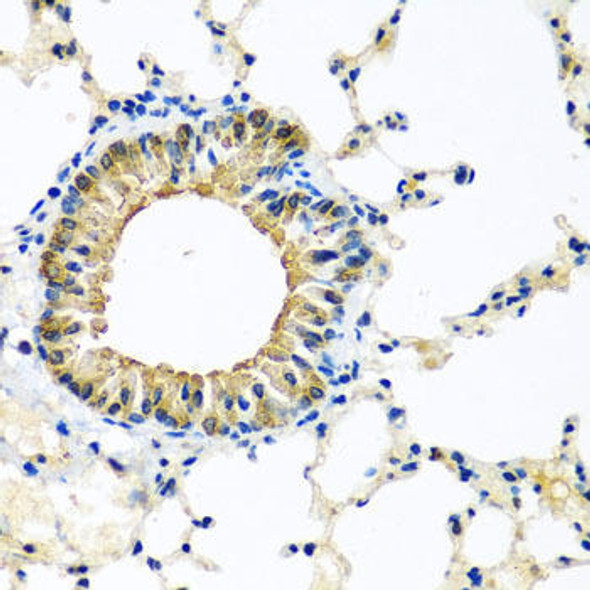KCTD15 Monoclonal Antibody [PAT4C3AT] (CPAB0439)
- SKU:
- CPAB0439
- Product Type:
- Antibody
- Antibody Type:
- Monoclonal Antibody
- Reactivity:
- Universal
- Host Species:
- Mouse
- Isotype:
- IgG3
- Clone:
- PAT4C3AT
- Applications:
- WB
- IF
- ELISA
Description
KCTD15 Monoclonal Antibody [PAT4C3AT] (CPAB0439)
The KCTD15 Polyclonal Antibody (CPAB0439) is a vital tool for researchers studying KCTD15, a protein known for its involvement in various cellular processes. This antibody, produced in rabbits, exhibits high reactivity towards human samples and has been validated for use in Western blot applications. By binding specifically to the KCTD15 protein, this antibody enables precise detection and analysis in a variety of cell types, making it indispensable for investigations in molecular biology and cancer research.
KCTD15 is a key player in cellular functions such as cell cycle regulation, protein ubiquitination, and gene expression control. Its diverse roles make it a promising target for studying diseases like cancer, neurodegenerative disorders, and developmental abnormalities. Through using this antibody to explore the functions of KCTD15, researchers can gain valuable insights into the molecular mechanisms underlying these conditions and potentially identify new therapeutic strategies.
| Product Name: | KCTD15 Antibody |
| Product Sku: | CPAB0439 |
| Size: | 5μg |
| Host Species: | Mouse |
| Immunogen: | Anti-human KCTD15 mAb, is derived from hybridization of mouse F myeloma cells with spleen cells from BALB/c mice immunized with recombinant human KCTD15 amino acids 1-234 purified from Ecoli. |
| Clone: | PAT4C3AT. |
| Reactivity: | Other bodies |
| Applications: | Western Blot, Immunofluorescence, ELISA |
| Purification Method: | KCTD15 antibody was purified from mouse ascitic fluids by protein-G affinity chromatography. |
| Isotype: | IgG3 |
| Background: | KCTD15 protein is encoded in humans by the KCTD15 gene. KCTD15 is expressed at a high level in the brain and the hypothalamus. The potassium channel KCTD15 was identified as a genetic loci linked to higher than normal BMI in humans along with genes such as GNPDA2, MTCH2, FTO, and TMEM18. SNPs (Single nucleotide polymorphisms) in non-diabetic and diabetic patients showed that FTO was most strongly associated with obesity while MTCH2 and GNPDA2 were still notably associated with higher than normal BMI levels. |
| Synonyms: | BTB/POZ domain-containing protein KCTD15, Potassium channel tetramerisation domain containing 15, KCTD15, MGC2628, MGC25497. |
| Storage Buffer: | For periods up to 1 month store at 4°C, for longer periods of time, store at -20°C. Prevent freeze thaw cycles. |






